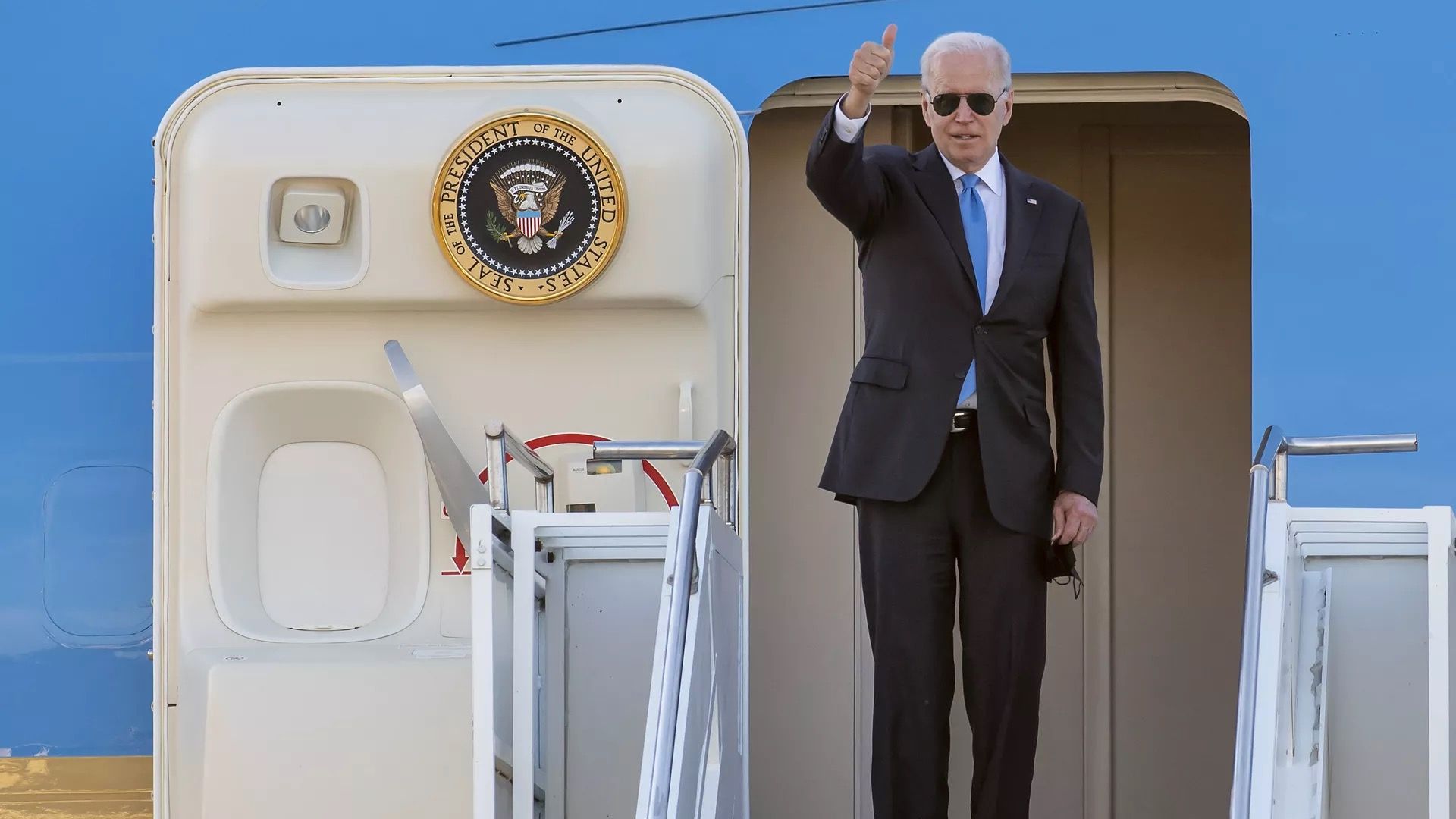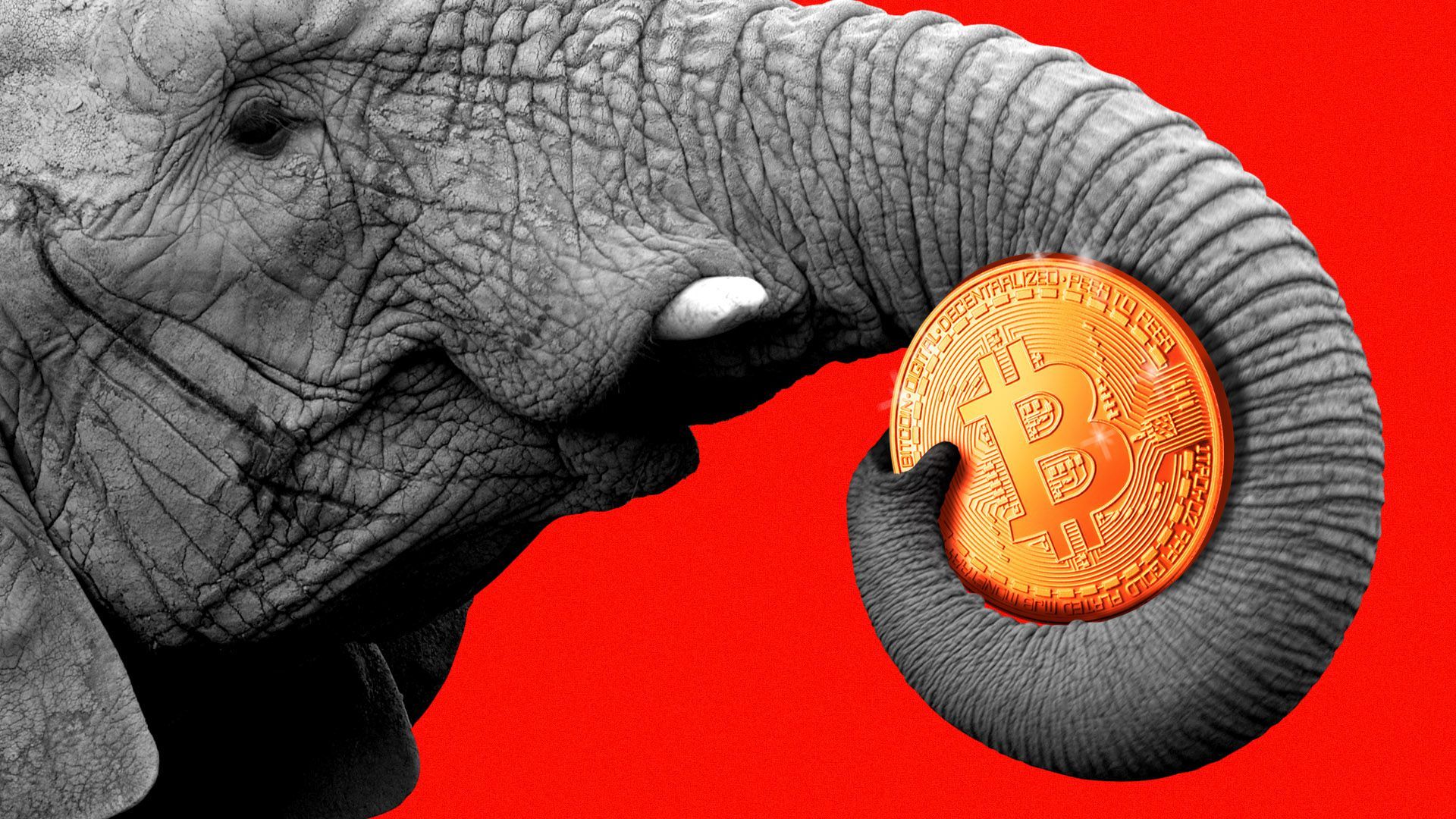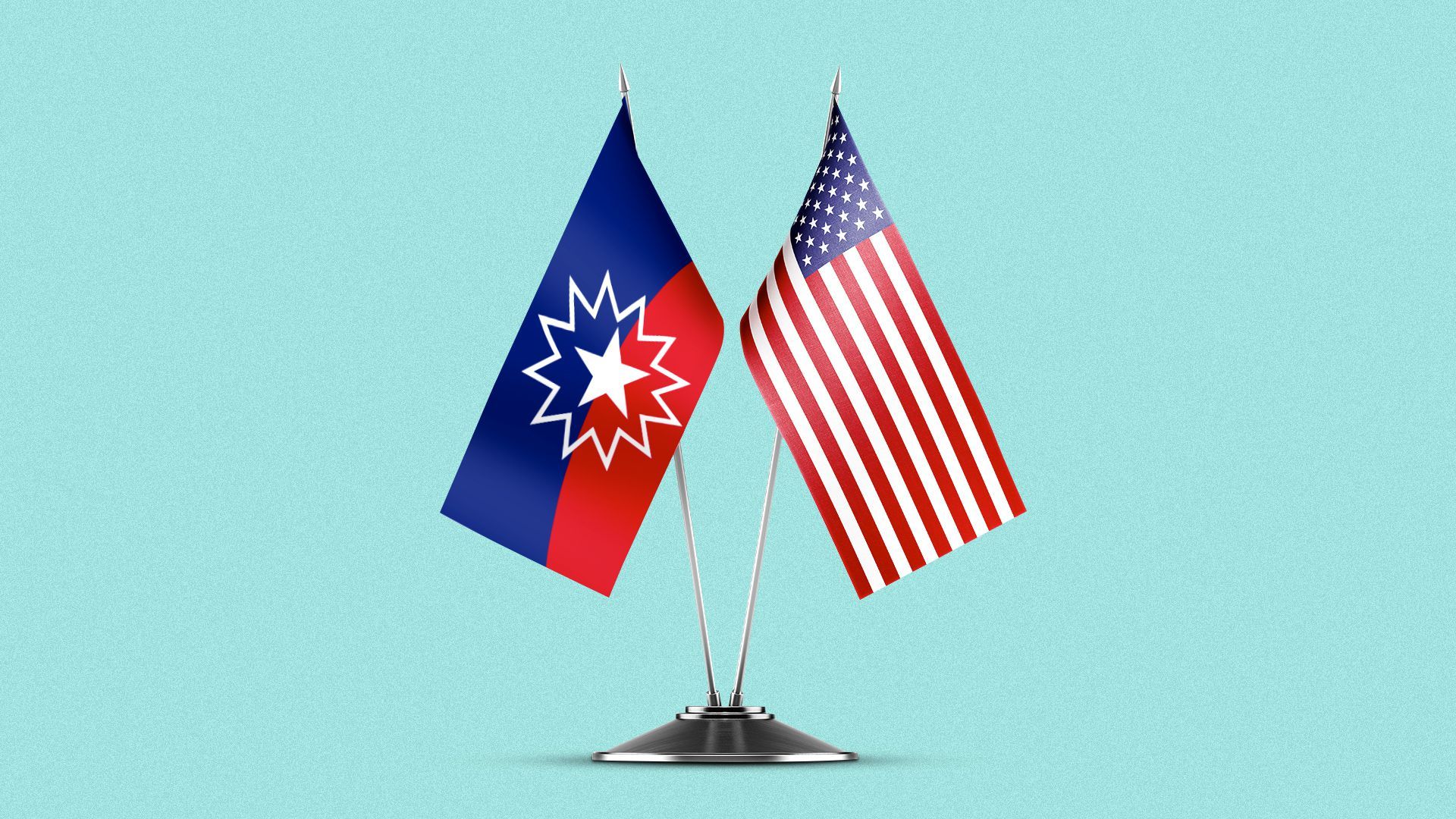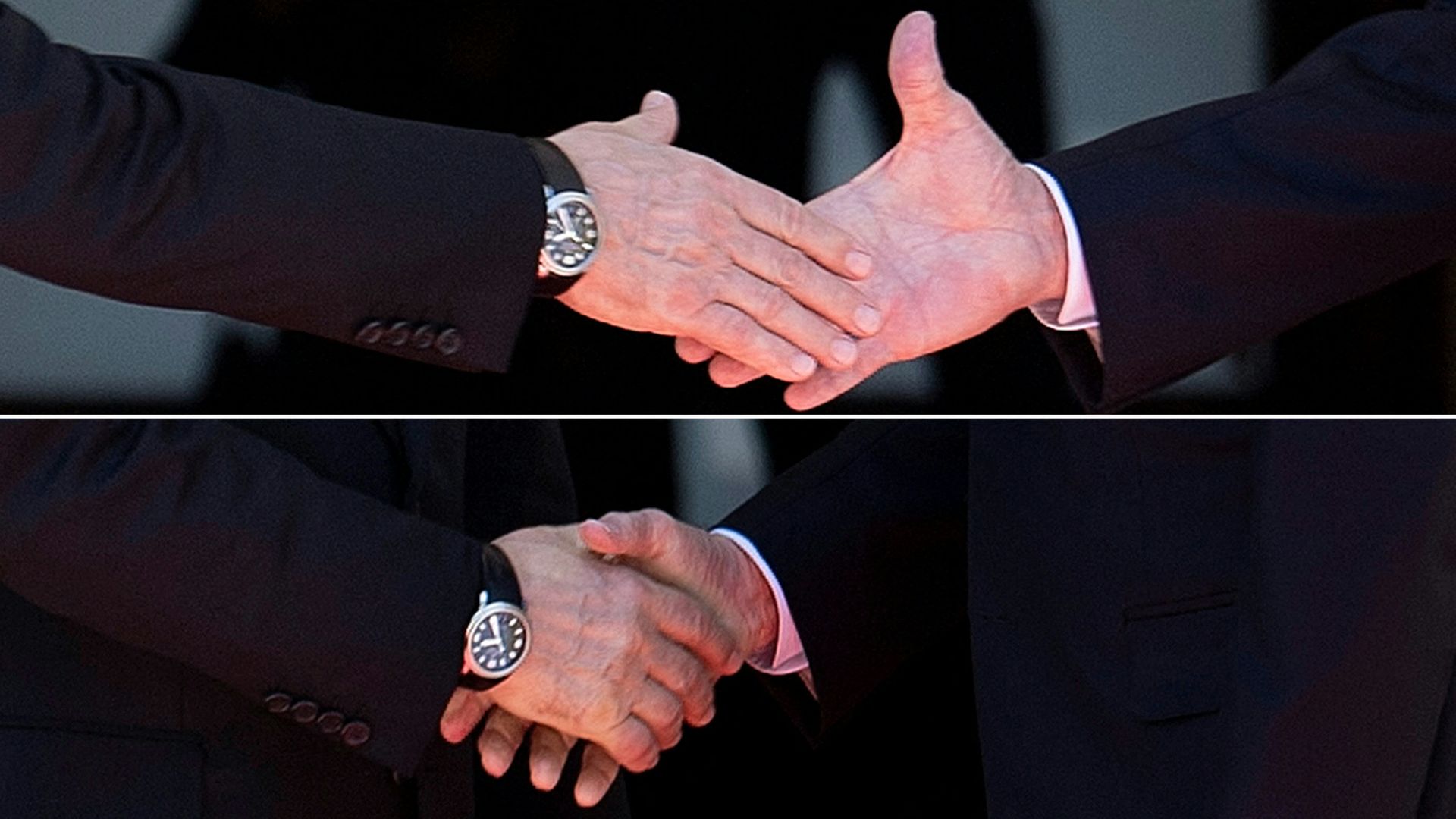| | | | | | | Presented By Tyson Foods | | | | Axios Sneak Peek | | By Alayna Treene and Hans Nichols ·Jun 16, 2021 | | Welcome back to Sneak. Joe Biden is (still) flying home after his first foreign trip as president. ⚡ Situational awareness: A bipartisan infrastructure bill picked up the support of 10 new Republicans — boosting its chance of getting 60 votes overall, Axios' Alayna Treene writes. Smart Brevity™ count: 1,232 words ... 4.5 minutes. Edited by Glen Johnson. | | | | | | 1 big thing: Biden's two-step negotiating process |  | | | President Biden departs Geneva. Photo: Martial Trezzini/Pool/AFP via Getty | | | | President Biden's summit "reset" was less about trying to make a friend out of Russia than reframing what the U.S. believes can be accomplished by engaging with President Vladimir Putin, Axios' Margaret Talev, Glen Johnson and Dave Lawler write. Driving the news: The Geneva meeting yielded no immediate breakthroughs beyond agreements about ambassadors returning to work and plans to launch talks on nuclear security. But in classic Biden fashion — aviators on, jacket off and a one-liner about invading Russia he had to clarify was a joke — the U.S. president used a post-summit news conference to explain his approach. Details: "My agenda is not against Russia" but for the U.S., Biden said today. There were "no threats," no hyperbole, just "simple assertions." The relationship is "not about trust" but self-interest and verification. - "I did what I came to do," Biden said, using words like "practical," "mutual interest" and "benefit the world," while saying he wanted Putin to hear directly from him what the U.S. considers unacceptable.
- He said he addressed election interference, cyberattacks, Ukraine, trade and the fate of imprisoned Americans.
There were warnings, too. If jailed opposition leader Alexi Navalny dies, Biden said, the consequences would be "devastating for Russia." Between the lines: The president's approach with Putin followed his approach to Congress in terms of bipartisan infrastructure talks: try to take the most optimistic path, give it some time and be prepared to march ahead with consequences. - It sounds the same with Putin. He said he wanted to work together and would set up some meeting structure to promote cooperation, then assess the results in several months.
- Biden is playing a slightly longer game, which is why he had chafed at some of the more momentary analyses of his meeting's results.
- In essence, the president is setting himself up for a great second act at home and abroad.
What to watch: Biden predicted it could be six months to a year before it's clear how much progress in the Russia relationship is possible. - Asked why the meeting was shorter than expected, Biden said he and Putin had covered so much ground in the first session that, "After two hours there, we looked at each other like, 'OK, what's next?'"
Keep reading. |     | | | | | | 2. Scoop: NRCC to accept cryptocurrency donations |  | | | Illustration: Sarah Grillo/Axios | | | | The Republicans' House campaign arm will begin accepting contributions in cryptocurrency, Axios' Lachlan Markay has learned. Why it matters: The National Republican Congressional Committee is the first national party committee to solicit crypto donations. That puts it at the forefront of a disruptive financial technology that could test campaign finance rules. How it works: The NRCC tells Axios it will process the donations using the payment processor BitPay. Crypto donations will be immediately converted into dollars before landing in the NRCC's account. - That means the committee will never actually take possession of the donated cryptocurrencies, allowing it to accept individual donations of up to $10,000 per year, rather than the $100 maximum value for transfers of actual cryptocurrency like Bitcoin.
- In other words, the NRCC isn't actually receiving crypto, it's just soliciting proceeds from their sales.
- It takes a step out of the process, allowing a more seamless transaction from crypto holdings to political contributions.
What they're saying: "We are focused on pursuing every avenue possible to further our mission of stopping Nancy Pelosi's socialist agenda and retaking the House majority, and this innovative technology will help provide Republicans the resources we need to succeed," Rep. Tom Emmer (R-Minn.), the NRCC chairman, said in a statement. - Emmer also is a co-chair of the Congressional Blockchain Caucus, as well as a member of the House Financial Services Committee.
- He recently pressed the IRS to ease regulations on cryptocurrency donations to charitable groups.
Background: While the NRCC is the first party committee to do so, a handful of federal political candidates have accepted crypto donations. - The Federal Election Commission has expressed concerns about tensions between federal transparency and disclosure rules and the anonymity that cryptocurrencies are designed to provide.
- The NRCC, like other political committees that have solicited crypto contributions, says it will diligently gather identifying information from all individuals who use crypto to donate.
|     | | | | | | 3. By the numbers: Federal holiday adoption dates |  Data: FederalPay; Chart: Connor Rothschild/Axios In the 244-year history of the United States, the government has created 10 federal holidays. Juneteenth — to be marked on June 19 — will become No. 11, Alayna also writes. Why it matters: It's not clear how all Americans will come to commemorate a day celebrating the formal end of slavery in the U.S., but it will come with all the trappings of the others: a day off for federal employees, and a potential close of businesses. - Juneteenth, already celebrated within the African American community, will be the first new federal holiday since Martin Luther King Jr. Day was created in 1983.
What they're saying: There are some Black men and women who do not feel mollified by the move. |     | | | | | | A message from Tyson Foods | | Tyson Foods targets net zero emissions by 2050 | | |  | | | | Tyson Foods aims to achieve net-zero emissions globally by 2050 – an expansion of the company's current science-based target of a 30% GHG emissions reduction by 2030. The company will focus on key areas across its global operations, energy sources and supply chain to achieve. Learn more. | | | | | | 4. The story behind the first holiday in 4 decades |  | | | Illustration: Aïda Amer/Axios | | | | As hard as it is to get Democrats and Republicans to agree on anything these days, they came together to make Juneteenth a federal holiday because George Floyd's death and withering concern about its cost finally won over critics, Alayna reports. Why it matters: Juneteenth will be the first new holiday since 1983, when Congress finally approved Martin Luther King Jr.'s birthday. When Biden signs it into law, June 19 will formally commemorate the end of slavery in the United States. - Establishing MLK Jr. Day was extremely controversial at the time and took almost 20 years to accomplish.
- Making Juneteenth a national holiday happened in roughly a year. It gained momentum last year after Floyd's murder while in police custody sparked the massive Black Lives Matter protests across the country.
- Congressional leaders finally dropped their party differences this week, with the Senate passing it Tuesday and the House doing the same tonight.
Between the lines: "It just seems like, given everything that's going on in terms of race relations in the country, it's an important reminder of how far we've come and how far we still have to go," Sen. John Cornyn (R-Texas), a co-sponsor of the Senate bill, told Axios. - The bill's passage comes as the parties continue to haggle over expansive legislation on voting rights and police reform.
- Some critics questioned whether Republicans were seeking to inoculate themselves over any vote against either bill.
- Cornyn dismissed any potential crossover effect from Juneteenth to the other bills, saying, "Those are really apples and oranges, in my opinion."
The backdrop: The legislation was introduced on a bipartisan basis in 2020 by Cornyn and Sen. Ed Markey (D-Mass.). - Sen. Ron Johnson (R-Wis.) then blocked the bill, arguing that having federal employees take the day off would cost U.S. taxpayers hundreds of millions of dollars.
- But Johnson didn't block the bill Tuesday when the Senate took it up again — eager to pass it before this Saturday, June 19.
- "It is clear that there is no appetite in Congress to further discuss the matter," Johnson said.
Keep reading. |     | | | | | | 5. 🇨🇭 Pics du jour |  | | | Photo: Brendan Smialowski/AFP via Getty Images | | | | "The real crucial link in the international exchange is the last three feet, which is bridged by personal contact, one person talking to another." — Edward R. Murrow, when the renowned radio reporter later worked for the United States Information Agency. |     | | | | | | A message from Tyson Foods | | Tyson Foods targets net zero emissions by 2050 | | |  | | | | Tyson Foods aims to achieve net-zero emissions globally by 2050 – an expansion of the company's current science-based target of a 30% GHG emissions reduction by 2030. The company will focus on key areas across its global operations, energy sources and supply chain to achieve. Learn more. | | | | 📬 Thanks for reading this historic Hump Day. A reminder you can sign up for email delivery of this or any of Axios' other free newsletters through this link. |  | | The tool and templates you need for more engaging team updates. | | | | | | Axios thanks our partners for supporting our newsletters. If you're interested in advertising, learn more here.
Sponsorship has no influence on editorial content. Axios, 3100 Clarendon Blvd, Suite 1300, Arlington VA 22201 | | | You received this email because you signed up for newsletters from Axios.
Change your preferences or unsubscribe here. | | | Was this email forwarded to you?
Sign up now to get Axios in your inbox. | | | | Follow Axios on social media:    | | | | | |










No comments:
Post a Comment